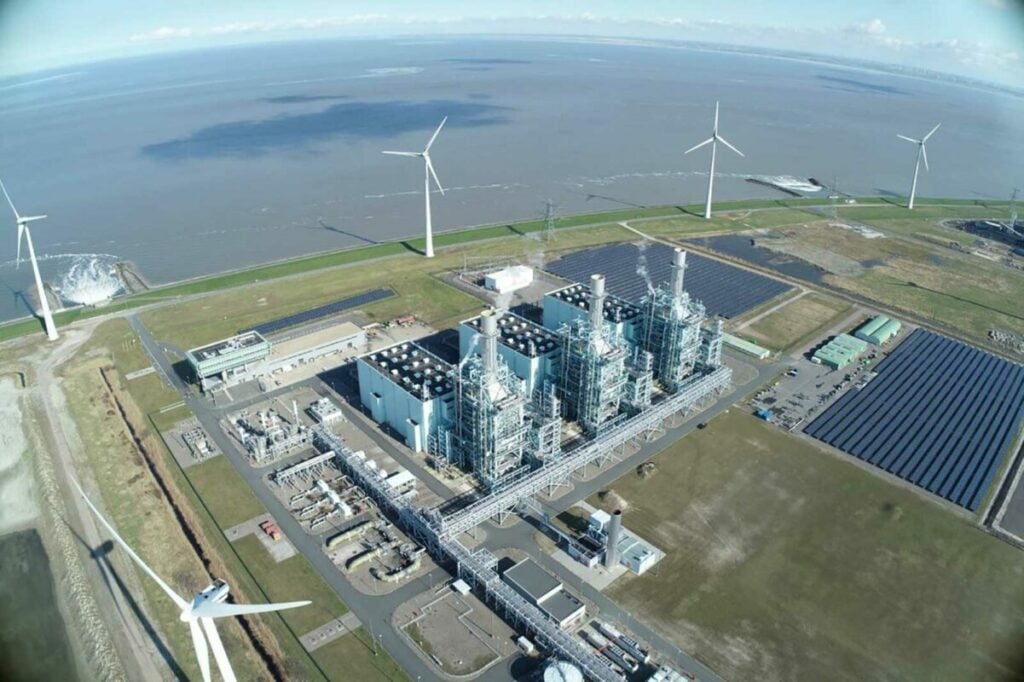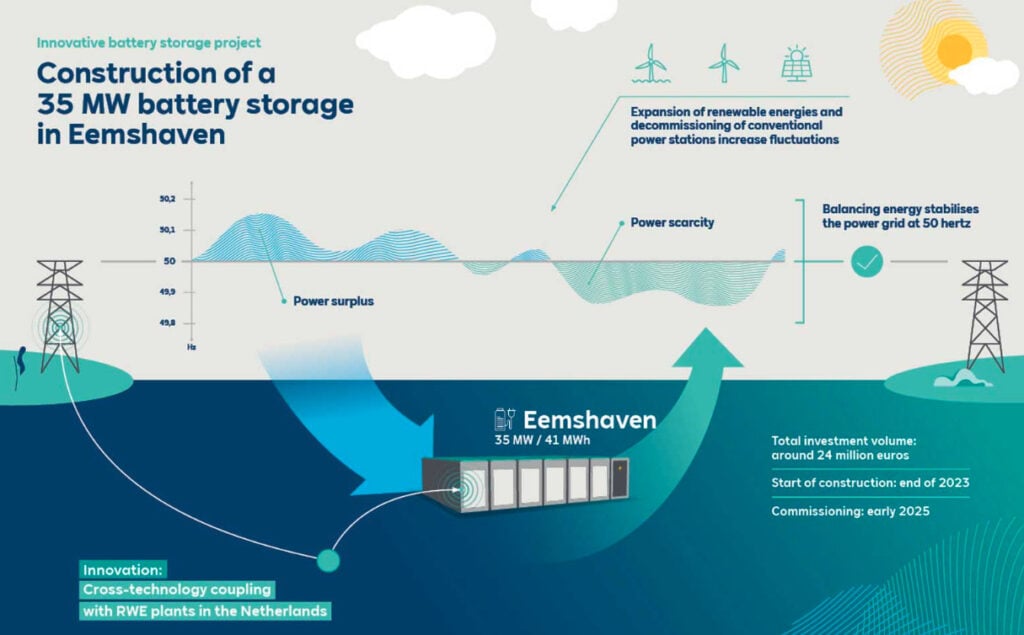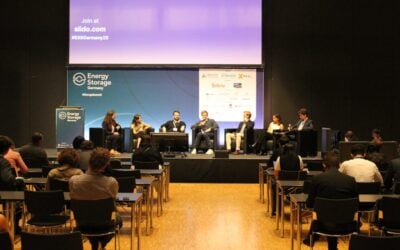
Germany-headquartered energy firm RWE is installing its first battery storage project in the Netherlands, with a 35MW unit virtually coupled with a biomass plant it operates.
The multinational will invest €25 million (US$25.5 million) in the 35MW/41MWh battery energy storage system (BESS) installed at its biomass plant in Eemshaven. Construction will start by the end of the year with a commissioning date in early 2025.
Enjoy 12 months of exclusive analysis
- Regular insight and analysis of the industry’s biggest developments
- In-depth interviews with the industry’s leading figures
- Annual digital subscription to the PV Tech Power journal
- Discounts on Solar Media’s portfolio of events, in-person and virtual
The BESS is one of a number of “innovative demand assets” which will integrate the OranjeWind offshore wind farm’s intermittent generation into the Dutch energy system, RWE said. It also plans to deploy green hydrogen production as part of that.
As with RWE’s projects in Germany, the BESS will be virtually coupled with its other power plants in the country to provide optimal energy management, either individually or as a group, visualised in an infographic below. It will charge and discharge to help maintain grid frequency, the company added.
RWE has its own proprietary BESS enclosure, and the Netherlands project will comprise 110 lithium-ion battery racks.
Transmission system operator (TSO) TenneT, which manages parts of the grid in both the Netherlands and Germany, recently said the Netherlands needs 9GW of new energy storage by 2030 while utility Eneco recently said the government needs to do more to facilitate the growth of storage.
Developers active in the Dutch market include Giga Storage, which commissioned the country’s largest BESS at 48MWh last year, and Lion Storage, which has an early-stage pipeline of around 1,500MW/3,000MWh it aims to reach commercial operation in 2025/26.

This is its first BESS in the country but RWE has been among the most active companies in developing BESS projects in its home market of Germany, and also has projects elsewhere including the US and Australia.
In Germany, it recently turned on solar-plus-storage projects alongside its lignite mines in the Rhenish mining region of Germany while in June it started building Germany’s two largest BESS projects.
The same month saw it connect a 137MW/548MWh BESS to the grid in California, one of the final steps before reaching commercial operation.






